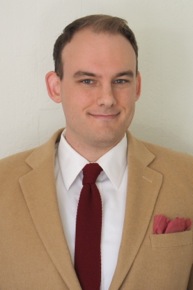In my last post, I discussed several important moral features of classical liberalism; this time, I want to discuss classical liberalism as a research program.
For thinkers like Ludwig von Mises and Friedrich Hayek, classical liberalism was first and foremost something to be studied and understood. The basic observation guiding their thinking is that the social world is incredibly complex yet also orderly. Furthermore, that order does not appear to be the product of some centralized coordinating authority. “Coordination without command” is the starting point of classical liberalism: how millions of individuals, each in possession of only a fraction of the knowledge necessary to create order in society, and each acting (generally) in the interests of themselves and their loved ones (rather than “society at large”), somehow produce social arrangements that exhibit a high degree of regularity and intelligibility.
“Coordination without command” is the starting point of classical liberalism.”]
The market is the classic example of such “spontaneous orders.” There are groups that plan within markets: business firms and households. But no organization or group of organizations plans the market itself. Guided by the price system — itself underpinned by crucial institutions that protect private property rights, enforce contracts, and uphold a non-discriminatory rule of law — the groups that act within markets can “react” to each other’s wants and plans just by looking at market prices.
If the price of oranges goes up, due to an unexpected frost killing off some of the orange crop, some households and firms will forego purchasing oranges and instead seek to fulfill their wants in other ways. The ones who still purchase oranges at the higher prices will be those who value oranges relatively more, such as hotels that can use orange juice as an input into a higher-price good, like mimosas.
This give-and-take between buyers and sellers is the order of a market economy. Without a centralized commander, the tug-and-pull of freely adjusting market prices helps most everyone get what they want, in a way that minimizes frustrated plans and conflicts.
To be sure, a positive appreciation for the complexities of markets and their role in human flourishing often yields a normative judgement that markets ought to be left as unimpeded as possible. Mises, famously, held a “rule utilitarian” ethical position: he favored the discovery and implementation of social rules that tended to maximize human well-being. But in order to discover these rules, he had to first “roll up his sleeves” and do the hard work of developing a rich body of social theory that could help him make sense out of the intricacies of the market and other orders, such as legal or constitutional order. Mises first and foremost was a social scientist devoted to understanding the extent to which human beings could live together peacefully, guided by forces other than sovereign fiat.Classical liberals can and should be ideological. But they ought not be ideologues.”]
Good classical liberals, then, can only responsibly engage the normative realm of classical liberalism if they appreciate how classically liberal institutions actually work — i.e., how real human beings relate to each other in societies not organized along the lines of a prison or army barracks. Even classical liberals who specialize in the normative aspects of the tradition must be familiar with the developments in market theory, legal theory, and constitutional theory as they have unfolded since the late 18th century.
Classical liberals can and should be ideological. But they ought not be ideologues. For the former, an appreciation of the social world’s complexities and the institutions that govern it occupy center stage. In other words, human freedom is the conclusion written on the final line, not the assumption written on the first line.



 If the price of oranges goes up, due to an unexpected frost killing off some of the orange crop, some households and firms will forego purchasing oranges and instead seek to fulfill their wants in other ways. The ones who still purchase oranges at the higher prices will be those who value oranges relatively more, such as hotels that can use orange juice as an input into a higher-price good, like mimosas.
If the price of oranges goes up, due to an unexpected frost killing off some of the orange crop, some households and firms will forego purchasing oranges and instead seek to fulfill their wants in other ways. The ones who still purchase oranges at the higher prices will be those who value oranges relatively more, such as hotels that can use orange juice as an input into a higher-price good, like mimosas.